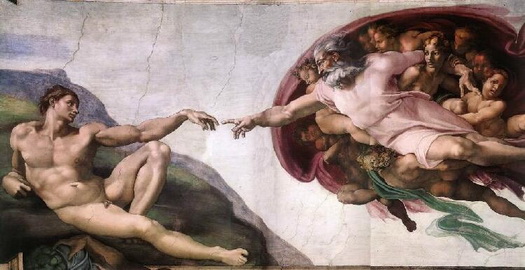打赌你不能解决的七个悖论
悖论的定义非常宽泛,但我们可以将它说成是藐视直觉的事实。一些悖论有解决的方法,而一些却没有。下面我们将举出七个悖论,打赌你不能解决。
意识自由
如果上帝无所不能并在造出我们之前就已经知道我们会做什么,那么我们如何才能够拥有自由意识呢?
回答:这个悖论可以用上帝存在超越时间来解释——他可以知道未来,就如同他知道过去和现在。正如过去并不干涉我们的意志自由,未来也不会干涉。
鳄鱼困境
一个鳄鱼偷了一个父亲的儿子,它保证如果这个父亲能猜出它要做什么,它就会将儿子还给父亲。那么如果这个父亲猜“鳄鱼不会将儿子还给他”,那会怎样?
回答:这是一个无解得问题。如果鳄鱼不还儿子,那么父亲就猜对了,鳄鱼就违背了诺言。如果鳄鱼将儿子还给他,那么父亲就猜错了,鳄鱼又违背了诺言。
祖父悖论
一个人回到了过去,在他祖母能遇到祖父之前就杀了他的祖父。这就意味着这个人的父母之中有一个不会出生;依次这个人自己也不会出生;这就意味着他没有机会进行时光旅游挥刀过去;这就意味着他的祖父依然还活着;这就意味着这个人能构思回到过去,并杀了自己的祖父。
回答:当时间旅行者改变了过去的某事的瞬间,那么平行宇宙就会被切开,这个可以由量子力学来解释。
沙堆悖论
有一堆1,000,000颗沙粒组成的沙堆。如果我们拿走一颗沙粒,那么还是有一堆;如果我们再拿走一颗沙粒,那么还是一堆。如果我们就这样一次拿走一颗沙粒,那么当我们们取得只剩下一颗沙粒,那么它还是一堆吗?
回答:设定一个固定的边界。如果我们说10,000颗沙粒是一堆沙,那么少于10,000颗沙粒组成的就不能称之为一堆沙。那么这样区分9999颗沙和10001颗沙就有点不合理。那么就有一个解决方案了——设定一个可变的边界,但是这个边界是多少,并不需要知道。
全能悖论
上帝能造出一个重到他自己也举不起的东西吗?如果他能,那么他不能举起这个东西,就证明他力量方面不是全能的。如果他不能,那么不能创造出这样一个东西,就证明他在创造方面不是全能的。
回答:最普遍的回答是上帝是全能的,所以“不能举起”是毫无意义的条件。其他的回答指出这个问题本身就是矛盾的,就像“正方形的圆”一样。
埃庇米尼得斯悖论
埃庇米尼得斯在一首诗中写道:“克里岛的人,人人都说谎,邪恶的野兽,懒惰的胴网!”然而埃庇米尼得斯自己却是个克里岛人。如果埃庇米尼得斯是一个克里岛人,并且是一个说谎者的话,那么他的诗中所说的“克里岛的人,人人都说谎”就是一个谎话。这就意味着所有的克里岛人都是诚实的人,那么埃庇米尼得斯所言就是实话。那么这个悖论又回到了开始。
回答:如果埃庇米尼得斯知道至少一个克里岛人(除了他以外)不说谎,那么他的诗就是一个谎言(因为他坚称所有克里岛人说谎),即使这首诗的作者是一个说谎者的事实也是真的。
无法阻挡的力量悖论
当一个无法阻挡的力量,碰到了一个无法移动的物体?如果这个力量移动了物体,那么这个物体就不是无法移动的。如果这个力量没有移动物体,那么这个无法阻挡的力量就被挡了下来。
回答:这种情况永远不会发生,因为如果真有无法阻挡的力量,那么就不会存在无法移动的物体,反之亦然。更有趣的是,不会有无法移动的物体。一个无法移动的物体必须有无限大的惯性,无限大的惯性,就需要无限大的质量。而无限大的质量不会存在于我们这个有限的世界。
文/译言
